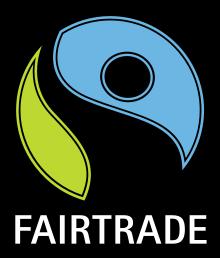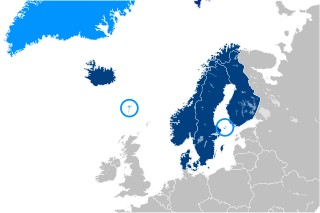
The economy of Honduras is based mostly on agriculture, which accounts for 14% of its gross domestic product (GDP) in 2013. The country's leading export is coffee (US$340 million), which accounted for 22% of the total Honduran export revenues. Bananas, formerly the country's second-largest export until being virtually wiped out by 1998's Hurricane Mitch, recovered in 2000 to 57% of pre-Mitch levels. Cultivated shrimp is another important export sector. Since the late 1970s, towns in the north began industrial production through maquiladoras, especially in San Pedro Sula and Puerto Cortés.

A dividend is a distribution of profits by a corporation to its shareholders. When a corporation earns a profit or surplus, it is able to pay a portion of the profit as a dividend to shareholders. Any amount not distributed is taken to be re-invested in the business. The current year profit as well as the retained earnings of previous years are available for distribution; a corporation is usually prohibited from paying a dividend out of its capital. Distribution to shareholders may be in cash or, if the corporation has a dividend reinvestment plan, the amount can be paid by the issue of further shares or by share repurchase. In some cases, the distribution may be of assets.
Unemployment benefits, also called unemployment insurance, unemployment payment, unemployment compensation, or simply unemployment, or Dole, are payments made by governmental bodies to unemployed people. Depending on the country and the status of the person, those sums may be small, covering only basic needs, or may compensate the lost time proportionally to the previous earned salary.

A salary is a form of periodic payment from an employer to an employee, which may be specified in an employment contract. It is contrasted with piece wages, where each job, hour or other unit is paid separately, rather than on a periodic basis. Salary can also be considered as the cost of hiring and keeping human resources for corporate operations, and is hence referred to as personnel expense or salary expense. In accounting, salaries are recorded in payroll accounts.
A worker cooperative is a cooperative owned and self-managed by its workers. This control may mean a firm where every worker-owner participates in decision-making in a democratic fashion, or it may refer to one in which management is elected by every worker-owner who each have one vote. Worker cooperatives may also be referred to as labor-managed firms.
Health Check was a certification program operated by the Heart and Stroke Foundation of Canada. First established in 1999, the program allowed food products that met predetermined nutritional guidelines to be marketed using a Health Check seal, identifying the product as being endorsed by the Heart and Stroke Foundation. Distributors and restaurants were required to pay a fee to the Heart and Stroke Foundation to license the logo.
The Ithaca Health Alliance is a community-based health care cooperative based in Ithaca, New York. It incorporates financial and service assistance models to alleviate health care costs for its members and is a model for cooperative health care reform in the United States. The mission of IHA is to facilitate access to health care for all, with a focus on the needs of the un- and underinsured. IHA sponsors and operates the Ithaca Free Clinic.

A farmworker, farmhand or agricultural worker is someone employed for labor in agriculture. In labor law, the term "farmworker" is sometimes used more narrowly, applying only to a hired worker involved in agricultural production, including harvesting, but not to a worker in other on-farm jobs, such as picking fruit.
In 1972 the United States Congress passed legislation authorizing the End Stage Renal Disease Program (ESRD) under Medicare. Section 299I of Public Law 92-603, passed on October 30, 1972, extended Medicare coverage to Americans if they had stage five chronic kidney disease (CKD) and were otherwise qualified under Medicare's work history requirements. The program's launch was July 1, 1973. Previously only those over 65 could qualify for Medicare benefits. This entitlement is nearly universal, covering over 90% of all U.S. citizens with severe CKD.

Human Rights in Andorra are guaranteed under the Andorran constitution. The State Department considers Andorra to have few human rights concerns.

Healthcare in Thailand is overseen by the Ministry of Public Health (MOPH), along with several other non-ministerial government agencies. Thailand's network of public hospitals provide universal healthcare to all Thai nationals through three government schemes. Private hospitals help complement the system, especially in Bangkok and large urban areas, and Thailand is among the world's leading medical tourism destinations. However, access to medical care in rural areas still lags far behind that in the cities.

Benin is predominantly a rural society, and agriculture in Benin supports more than 70% of the population. Agriculture contributes around 35% of the country's gross domestic product (GDP) and 80% of export income. While the Government of Benin (GOB) aims to diversify its agricultural production, Benin remains underdeveloped, and its economy is underpinned by subsistence agriculture. Approximately 93% of total agricultural production goes into food production. The proportion of the population living in poverty is about 35.2%, with more rural households in poverty (38.4%) than urban households (29.8%). 36% of households depend solely upon agricultural (crop) production for income, and another 30% depend on crop production, livestock, or fishing for income.
Nai Soi is a small village located in Mae Hong Son Province in northern Thailand. The village is under the administration of the Thai authorities. Nai Soi is about three kilometers from the Ban Mai Nai Soi Karenni refugee camp. Nai Soi is about 20 kilometers from the town of Mae Hong Son, along a paved road accessible year-round. It is perhaps most well known for the refugee camp found there and for having the largest Karenni settlement of the three villages. Thai authorities view Ban Mai Nai Soi as a self-sustaining refugee camp.

Agriculture in Saudi Arabia is focused on the export of dates, dairy products, eggs, fish, poultry, fruits, vegetables, and flowers to markets around the world after achieving self-sufficiency in the production of such products. The government of Saudi Arabia is heavily involved in the agriculture industry and subsidizing corporate farming and the Ministry of Environment, Water and Agriculture is primarily responsible for agricultural policy. In the private sector, farmers receive long-term interest-free government loans and low-cost water, fuel, electricity, and duty-free imports of raw materials and machinery.

A fair trade certification is a product certification within the market-based movement of fair trade. The most widely used fair trade certification is FLO International's, the International Fairtrade Certification Mark, used in Europe, Africa, Asia, Australia and New Zealand. Fair Trade Certified Mark is the North American equivalent of the International Fairtrade Certification Mark. As of January 2011, there were more than 1,000 companies certified by FLO International's certification and a further 1,000 or so certified by other ethical and fairtrade certification schemes around the world.

Social security or welfare in Finland is very comprehensive compared to what almost all other countries provide. In the late 1980s, Finland had one of the world's most advanced welfare systems, which guaranteed decent living conditions to all Finns. Created almost entirely during the first three decades after World War II, the social security system was an outgrowth of the traditional Nordic belief that the state is not inherently hostile to the well-being of its citizens and can intervene benevolently on their behalf. According to some social historians, the basis of this belief was a relatively benign history that had allowed the gradual emergence of a free and independent peasantry in the Nordic countries and had curtailed the dominance of the nobility and the subsequent formation of a powerful right wing. Finland's history was harsher than the histories of the other Nordic countries but didn't prevent the country from following their path of social development.
Examples of health care systems of the world, sorted by continent, are as follows.
Economic democracy is a socioeconomic philosophy that proposes to shift ownership and decision-making power from corporate shareholders and corporate managers to a larger group of public stakeholders that includes workers, consumers, suppliers, communities and the broader public. No single definition or approach encompasses economic democracy, but most proponents claim that modern property relations externalize costs, subordinate the general well-being to private profit and deny the polity a democratic voice in economic policy decisions. In addition to these moral concerns, economic democracy makes practical claims, such as that it can compensate for capitalism's inherent effective demand gap.
A moneyless economy or nonmonetary economy is a system for allocation of goods and services without payment of money. The simplest example is the family household. Other examples include barter economies, gift economies and primitive communism.









